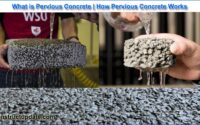7 Types of Construction Claims | Disputes and Prevention Measures
A construction claim is the assertion of a right that calls for additional time or/and payment from either party to the contract (typically the contractor) to make up for losses caused by the other party’s failure to fulfil their side of the obligations as outlined in the contract.
A time extension or additional cash are frequent forms of compensation (EOT).
Construction disputes can come about as a result of client, contractor, and subcontractor actions taken to achieve their objectives and maximise their benefits.
Due to fierce market rivalry, contractors can feel pressured to submit project proposals with low-profit margins in order to remain competitive.
Contractors are therefore under more pressure to complete the projects while making less money. Due to different expectations and goals, there is a good probability that the contractor won’t be able to satisfy the customer throughout project execution in this situation, which could lead to problems.

The 7 Most Common Construction Claim Types to Avoid
Construction claims typically start when one of the parties requests remuneration that is not allowed by the terms of the contract. We have created a list of the most prevalent construction claims that contractors should be aware of to assist you in understanding commercial claims in building contracts.
1. Construction Delay Claims
When unforeseeable events extend a project past the original set timeline, delay claims become necessary. As a result, this throws off the planned schedule. There are numerous reasons why delays occur. These range from flawed planning or deficient permit applications to external problems like the weather. These allegations cause the customer to lose money or productivity. These circumstances, albeit often beyond your control, can cost your business a lot of money in insurance claims and legal action.
2. Damage Claim
When a construction project damages the business location or any surrounding property, a claim is brought. In these circumstances, the client who suffered property loss may file a claim for damages against the contractor to hold the latter responsible for this harm.
3. Change of Work
One of the most typical claims in the construction sector is this one. When the project has already begun and the contractor receives a change order from the customer, this claim is made. Conflicts arise when the client and the contractor differ on what is and isn’t covered under the contract.
4. Price Acceleration Claims
When the anticipated project budget increases to finish the job on time or early, price acceleration claims occur. Since they are the ones who pay for the accelerated service, the client is the one who must submit the claim.
5. Change in Site Condition
When the project site’s actual condition differs from what the client promised in the contract, a claim for differing site conditions may be possible.
6. Injuries
On occasion, a claim is made that a building site’s safety requirements were not followed when an accident occurs. Construction workers and bystanders may have contributed to the disaster.
7. Construction Defects
A claim for construction faults is frequently made after the contractor has already completed the work. The client submits a claim, saying that there are flaws in the contractor’s work that are leading to problems and harm to the building or construction site.
How Can Contractors Avoid These Construction Claims?
In the construction sector, no contract is claim-proof. However, you can take some preventative steps to lessen the possibility of getting drawn into pricey litigation. Here is some advice on avoiding building claims in business contracts.
1). Well Written Contracts
Communication is essential in the construction industry because it makes problems easier to resolve quickly. Clear terms and conditions that shield all parties from legal claims are defined in good contracts. Fair risk distribution among all parties is a hallmark of good contracts, which helps to lower risk and the likelihood of disputes.
In order to create contracts that safeguard them against all risks, contractors must first contact construction claims consultants. These professionals guarantee that your contract contains all crucial provisions that will shield you from unforeseen and legitimate claims.
2). Good Project Record Keeping
The simultaneous completion of so many duties is one of the most challenging parts of construction. With so much information available, it is simple to become distracted and perplexed. However, you can communicate more effectively and it aids in conflict resolution if you keep accurate records of all the actions on the jobsite.
3). Construction Safety Practices
Protecting the workers and the property while the project is being built is the contractors’ top priority. Therefore, implementing a construction safety program can assist in addressing safety issues and reducing accident risks.





